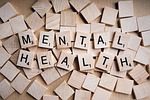You’re eating well. Sleeping (kind of). Staying somewhat active. Yet you still feel like a tired sloth in a coffee commercial. Sound familiar? If you constantly find yourself Googling, “Why am I always tired?” — don’t worry, you’re in good (exhausted) company.
Fatigue can feel like a mystery wrapped in a yawn, but it’s often the result of clear, fixable factors. Let’s break it down and maybe — just maybe — reclaim that lost energy (and your social life).
What Is Chronic Fatigue? Why am I always tired?
Chronic fatigue isn’t just about feeling sleepy — it’s a deep, soul-level tiredness that no nap can fix. It’s the kind of tired that makes you stare at your phone while holding a cup of coffee you forgot you made. If you’ve been feeling like a background character in your own life, it might be time to investigate the cause.
7 Common Causes of Chronic Fatigue
Let’s dig into the usual suspects behind feeling tired all the time — and no, the answer isn’t just “you’re lazy.” (Although your couch may disagree
1. Poor Sleep Quality

If your sleep is more “Netflix marathon” than “restorative slumber,” don’t be surprised if your energy’s in the gutter. From insomnia to sleep apnea, bad sleep turns you into a permanently exhausted pigeon.
Fix it:
- Establish a consistent sleep routine — even on weekends.
- Limit screen time before bed and create a calming bedtime environment.
- Consult a healthcare provider if snoring or frequent awakenings are an issue.
2. Stress and Mental Health Issues

Stress, anxiety, and depression don’t just affect your mind — they take a toll on your energy levels too. Mental fatigue can be just as exhausting as physical exertion. See:
https://biomedicapk.com/files/articles/pdf/134/show
What to do:
- Practice mindfulness, breathing exercises, or light physical activity.
- Reach out to a mental health professional if needed.
- Spend time outdoors and connect with supportive people.
3. Poor Diet and Dehydration

A nutrient-poor diet or chronic dehydration can lead to sluggishness. Your body needs balanced fuel to function properly.
What to do:
- Choose nutrient-rich whole foods like fruits, vegetables, whole grains, and lean proteins.
- Stay well-hydrated throughout the day — aim for water over sugary drinks.
- Avoid excessive caffeine and refined sugars.
4. Lack of Physical Activity

It might seem counterintuitive, but inactivity often leads to lower energy. Regular movement helps boost circulation, release endorphins, and improve sleep — all of which reduce fatigue.
What to do:
- Incorporate light to moderate activity into your routine — even 10-minute walks help.
- Stretch regularly, especially if you spend long hours sitting.
- Choose activities you enjoy so you’re more likely to stick with them.
5. Underlying Health Conditions

Certain medical conditions like hypothyroidism, anemia, or chronic fatigue syndrome can cause ongoing exhaustion, even with adequate rest and nutrition.
What to do:
- Consult your doctor for a proper evaluation.
- Get tested for common issues such as thyroid imbalance, vitamin deficiencies, or iron levels.
- Follow a treatment plan if a condition is diagnosed.
6. Overstimulation from Technology

Frequent screen time, especially before bed, can interfere with your circadian rhythm by suppressing melatonin — the hormone that helps you sleep.
What to do:
- Limit screen use at least an hour before bedtime.
- Use blue light filters or night mode on your devices.
- Consider screen-free time before bed — reading or journaling are great alternatives.
7. Dehydration and Caffeine Dependence

Relying heavily on caffeine can create a cycle of temporary boosts followed by energy crashes. Combined with dehydration, this can leave you feeling drained.
What to do:
- Drink plenty of water consistently throughout the day.
- Limit caffeine intake, especially in the late afternoon or evening.
- Opt for natural energy sources like fruits, nuts, or herbal teas
How to Overcome Chronic Fatigue: Actionable Tips
If you’re ready to move from surviving to thriving, these simple yet effective changes can help you feel more energized:
- Prioritize quality sleep: Stick to a sleep schedule and create a restful environment.
- Eat for energy: Fuel your body with balanced, nourishing meals.
- Move regularly: Light exercise can improve mood and energy.
- Manage stress: Identify stressors and use healthy coping strategies.
- Limit screen time: Especially before bed to support healthy sleep patterns.
- Seek medical advice: If lifestyle changes don’t help, consult a healthcare provider.
Conclusion: Regaining Your Energy and Combatting Chronic Fatigue
Chronic fatigue is a sign that your body and mind need attention. While it’s common, it shouldn’t be ignored. With the right habits, awareness, and support, you can start to feel like yourself again — more energized, focused, and ready to take on the day.
Checheck out the top 5 clinically proven supplements for chronic fatigue:
https://beyondthesteth.com/5-best-supplements-for-chronic-fatigue-2025/


It’s really a useful and helpful information
Great work performed
This is most common and up growing arising in the youth and new generation
It’s really a useful and helpful information
Great work performed
This is most common and up growing arising problem in youth and new generation
Informative and a kind of helpful
Didn’t realize how many small habits could be draining energy daily. The practical tips, especially about managing stress and sleep, were super helpful. written in clear and relatable way.
Good
Nice! It’s very helpful.
Exceptionally well written. Not only was it knowledgeable but also the wit had me reading on. Loved it <3